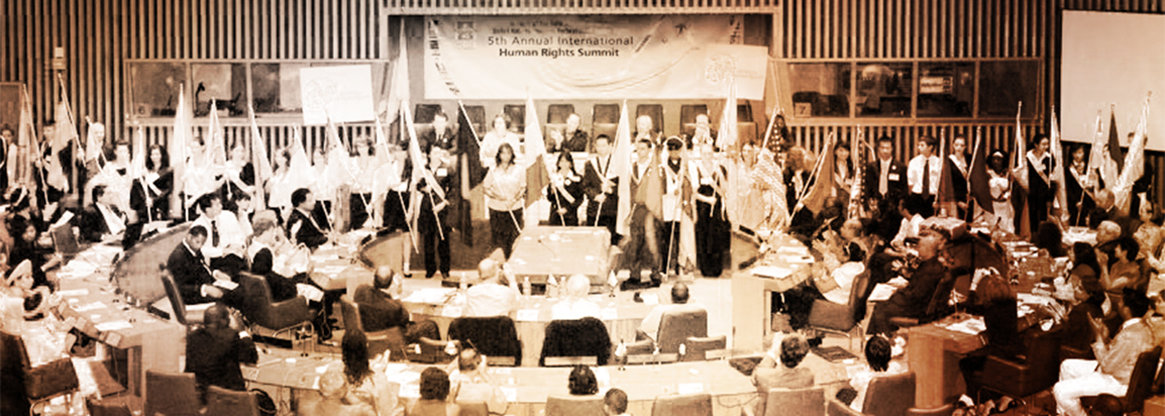
Church of Scientology: Champion of Human Rights since 1954
Overview
The Church of Scientology is deeply committed to human rights for all. Its human rights education programs and human rights activities throughout the world stand second to none. In the words of Scientology Founder L. Ron Hubbard, “Human rights must be made a fact, not an idealistic dream.”
The Creed of the Church extends from the belief that Man is an immortal spiritual being and therefore all men of whatever race, color or creed are created with equal and inalienable rights. The achievement of spiritual freedom is only possible in a world where human rights are fully respected.
In alignment with these precepts, the Church of Scientology is committed to the principles articulated in the “Church of Scientology Proclamation on Religion, Human Rights and Society” issued in September 2003. The 22-point Proclamation articulates the Church’s commitment to the defense of human rights. It contains the Church’s definitive statements on vital issues, including the role of religion in society; the right to freedom of belief; the right to freedom of expression; the right to equality and nondiscrimination; the right to freedom from inhumane treatment; the rights of children; the right to freedom of information; the responsibility of the State and all its citizens to protect and advance human rights for all; the promotion of democracy, peace and open government; adherence to the rule of law, fairness and justice for all; church-and-state relations; and other fundamental rights that lie at the heart of a democratic and pluralistic society.
The Church holds that the heart of human rights consists of respecting the manifold variety of human life, including people of every racial, ethnic and cultural background or sexual orientation, as well as the broad spectrum of personal opinions and religious beliefs. The foundation of human rights consists of a strong mutual respect among a government and its people, religious communities and other groups, believers and atheists alike.
The commitment of the Church of Scientology to human rights flows from the Church’s Creed and fundamental writings of L. Ron Hubbard that emphasize the dedication of the Scientology religion to universal human rights.
- “We of the Church believe: That all men of whatever race, color or creed were created with equal rights.” Creed of the Church of Scientology, 1954
- “As a Scientologist, I pledge myself to the Code of Scientology for the good of all. … (8) To support true humanitarian endeavors in the fields of human rights. (9) To embrace the policy of equal justice for all.” The Code of a Scientologist, 1969
- “Adhere to the principle that all men are equal under law, a principle which, in its own time and place—the tyrannical days of aristocracy—was one of the greatest social advances in human history and should not be lost sight of.” The Way To Happiness, 1981
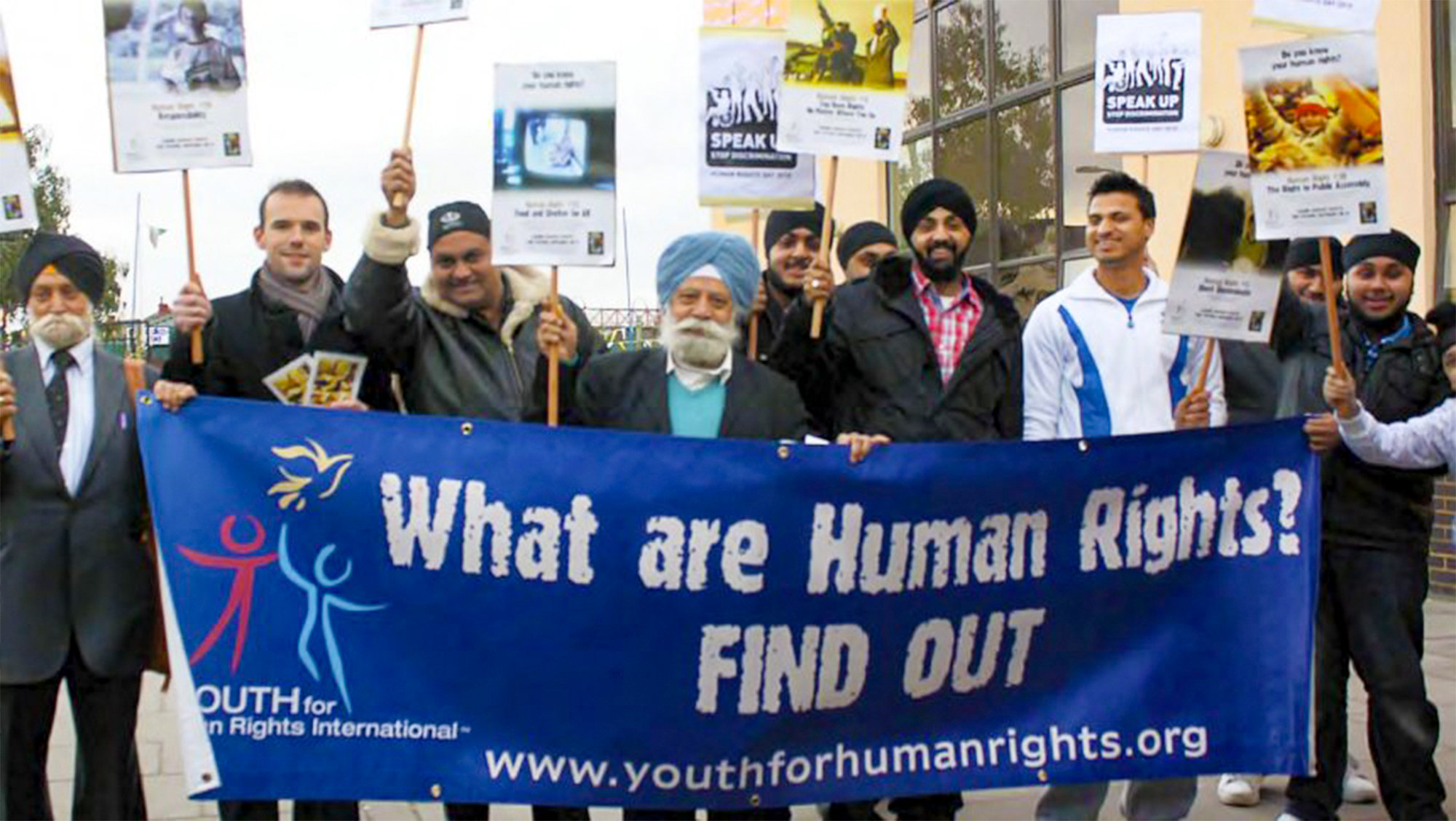
Promoting the Universal Declaration of Human Rights
The Church’s commitment to human rights is evidenced by the extensive human rights programs it supports. In many countries of the world, the Church has brought together diverse religions to speak out against intolerance.
To mark the 50th anniversary of the United Nations Universal Declaration of Human Rights (UDHR), in December 1998 the Church launched a yearlong human rights public information campaign including billboards, fliers and radio spots airing across Europe inviting people to "Think for Yourself," among other messages. Featuring famous independent artists, scientists and adventurers including Vincent van Gogh and Albert Einstein, the campaign was designed to inspire others to defend their right to Article 19 of the UDHR: “Everyone has the right to freedom of opinion and expression.”
The Church also commenced a European Journey for Religious Freedom campaign at this time. News of this 3,225-kilometer marathon through eight countries reached an estimated 33 million people, raising public awareness of the importance of human rights.
And to further bring the message of human rights to Europe, the Church launched the European Marathon for Human Rights—4,500 kilometers through seven countries in 13 weeks. The team of runners carried a proclamation supporting the Universal Declaration of Human Rights, and as they traveled through new cities the runners invited others to sign on.
In 2000 the marathon began in Belgium, where the Church organized a public forum for religious leaders from 38 different religious movements who had been discriminated against solely because of their religious beliefs. A new element was added to the 2001 Marathon with the inclusion of a special program to teach human rights to the young and the publication of the booklet "What Are Human Rights?" containing a simplified version of the Universal Declaration of Human Rights. That booklet was later translated in Russian, Swedish, Finnish, Norwegian, Danish, Dutch and Farsi.
In August 2002 the Church organized the largest contest ever—the European Multathalon for Human Rights. “Multathalon” is a coined word meaning “many contests.” Events included running, biking, canoeing, rollerblading, sailing and horseback riding.
With the inauguration of these events, thousands of mayors, city council members, parliamentarians, police commanders, Olympic athletes, leading musicians and artists, and religious leaders from throughout Europe expressed their support by signing proclamations in support of the Universal Declaration of Human Rights.
Youth for Human Rights International

Inspired by the human rights work of their Church, several Scientologists formed Youth for Human Rights International (YHRI) to educate young people about human rights, specifically the 30 Articles of the Universal Declaration of Human Rights. YHRI’s mission is to empower young people to protect their rights and the rights of all and to provide them with the tools they need to become advocates for human rights.
The group conducts an annual World Tour promoting the Universal Declaration of Human Rights. On the first World Tour, in 2004, a young member of YHRI with a video camera created what became the award-winning video UNITED. The tour has now traveled to more than 50 cities and reaches out to people from all walks of life, from orphans to heads of state, with the human rights message.
The Church of Scientology sponsored the production of 30 public service announcements (PSAs) for YHRI, each depicting one Article of the UDHR in stunning visual stories. These PSAs have aired across the globe, including on CNN International, MTV Networks, the History Channel, BBC America and others. Youth for Human Rights continues its campaign of educating the public on human rights. In December 2008, events were sponsored around the world to mark the 60th anniversary of the UDHR, including an interreligious coalition in Los Angeles, a concert in Federation Square in Melbourne, Australia, and sports events in Russia.
The Human Rights Commissions of Mexico and New Zealand have both taken the YHRI materials as their own and have taught human rights to young people across their nations. The Mexican Chamber of Representatives has aired the PSAs on all 2,000 TV monitors within their halls and offered copies of the PSAs to young visitors who tour the facilities.
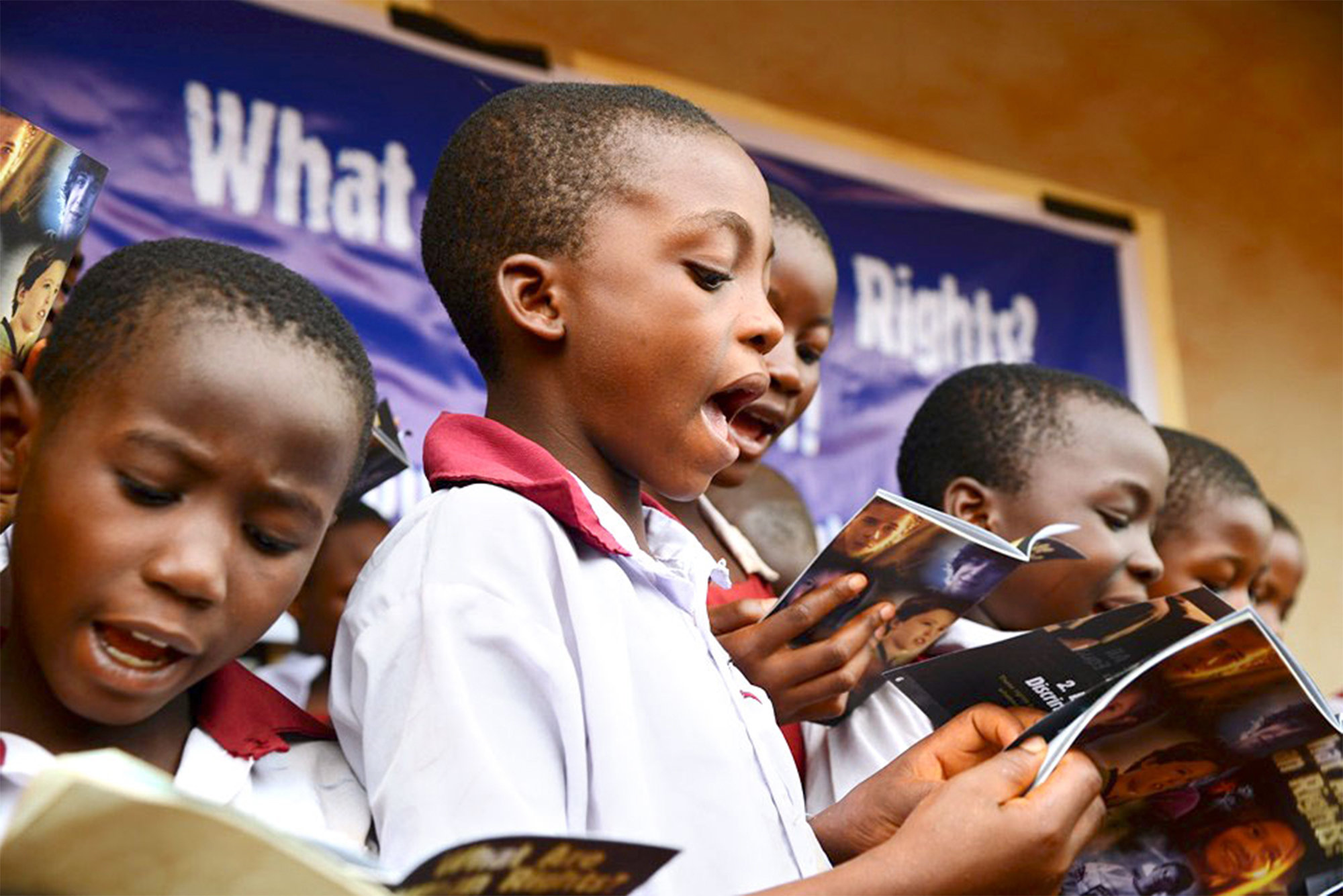
USA Major League Soccer aired five of the YHRI PSAs during half-time shows of their games with messages from soccer stars supporting human rights. Cal South Soccer, 10,000 youth soccer teams in Southern California, has officially launched a Kick Discrimination joint campaign with YHRI.
The government of a South African province officially adopted the campaign and with its Department of Safety and Security has worked with YHRI South Africa in schools and afterschool programs of the region to teach human rights.
YHRI is ever expanding and its members come from all social and religious backgrounds, with chapters in Ghana, Liberia, Zimbabwe, South Africa, Pakistan, India, Israel, Taiwan, Japan, Australia, New Zealand, most European nations, the USA, Canada, Venezuela, Mexico and many more. Through these local chapters and annual World Tour, representatives of Youth for Human Rights International teach basic human rights in the world’s human rights hotspots.
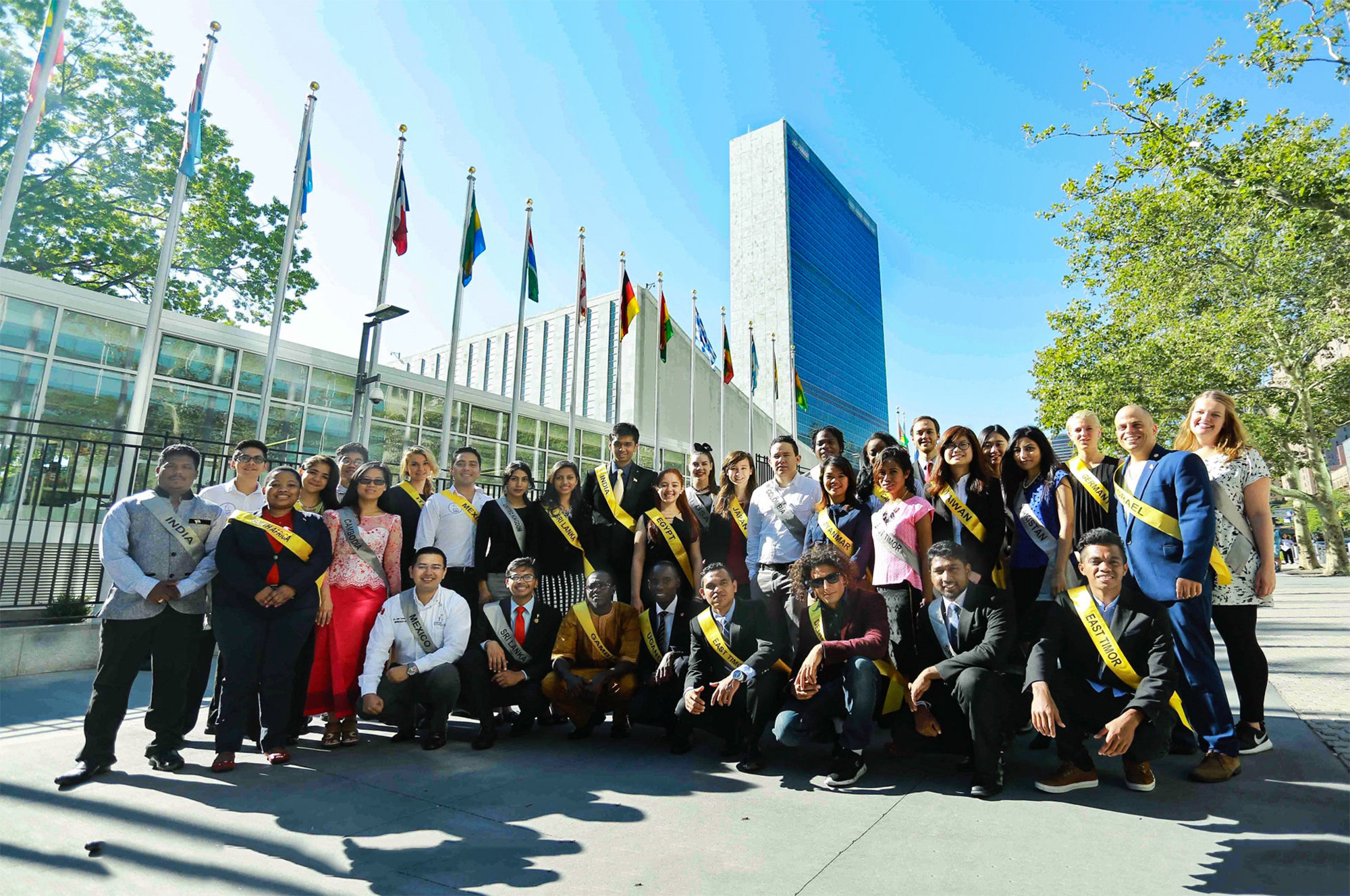
YHRI, in partnership with the Church of Scientology, has held annual International Summits with youth from across the globe who then return home inspired to continue and expand human rights activities to the betterment of their home countries. These annual Summits are held at the United Nations in New York City, in Los Angeles or in Geneva, Switzerland.
A youth leader from India attended the 2004 International Summit when she was 13. Returning home, she promptly held human rights seminars for children in her local library. This expanded to human rights lectures to the New Delhi Police resulting in meetings with both the Prime Minister and President of India on the importance of the Universal Declaration of Human Rights. To cap it, this Indian youth leader was recently recognized as the Youngest Human Rights Lecturer in the Government Sector in the Limca Book of Records, India’s equivalent of Guinness World Records.
Today the Church’s human rights initiative sponsors a myriad of activities and provides its material to over 5,000 groups and organizations in over 190 nations. The materials include full education packages with lesson plans, booklets and videos.
In its work supporting and promoting human rights for all, the Church of Scientology works closely with other human rights groups, governments, nongovernmental organizations, interfaith groups, community groups and churches.
United for Human Rights
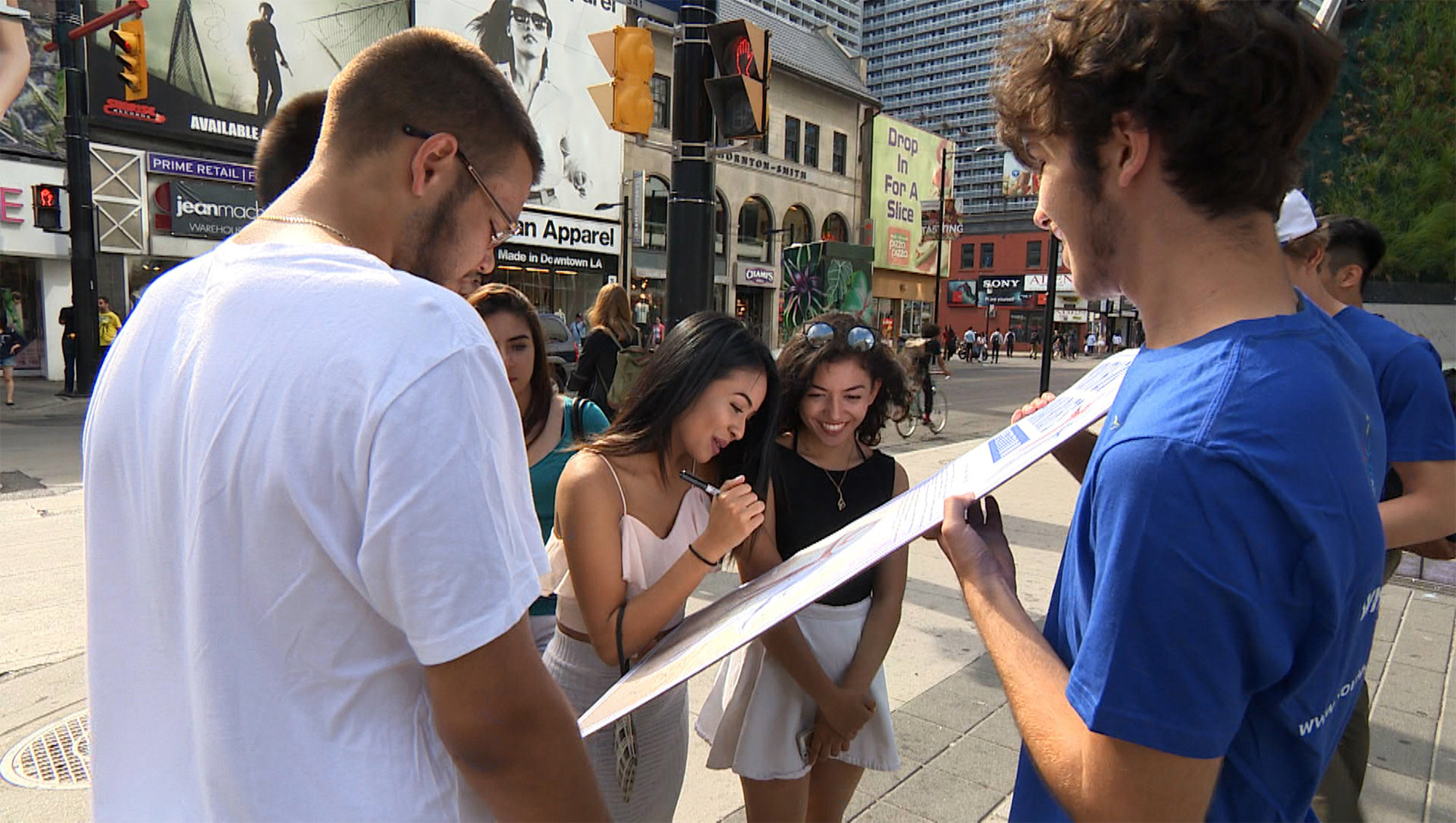
The Church’s support of Youth for Human Rights is one element of the Church’s human rights program. The Church also publishes human rights educational materials geared to adults. In support of United for Human Rights, the Church makes available to thousands of human rights organizations all over the world adult guides to the Universal Declaration of Human Rights called “Know Your Human Rights,” a filmed documentary entitled The Story of Human Rights, and an educator’s guide containing fact sheets on human rights abuse zones, model petitions for addressing governments, and instructions detailing exactly how to make one’s voice heard.
Interfaith Activities in Support of Human Rights
Members of the Church of Scientology, in concert with like-minded groups, nongovernmental organizations, governments and intergovernmental bodies have provided public forums over the past five decades to promote, uphold and guarantee human rights and fundamental freedoms.
In May 2008, the Church of Scientology International sponsored a conference for Los Angeles-area religious leaders and law enforcement officials aimed at developing awareness and effective responses to religiously motivated hate crimes.
In March 2007, the Church sponsored a conference of 55 human rights and educational leaders from government, education and nongovernmental organizations in Budapest, Hungary. Attendees ranging from the head of the National Department of Equality to the NGO Anti-Discrimination Foundation reviewed problems and solutions for human rights education in today’s pluralistic society.
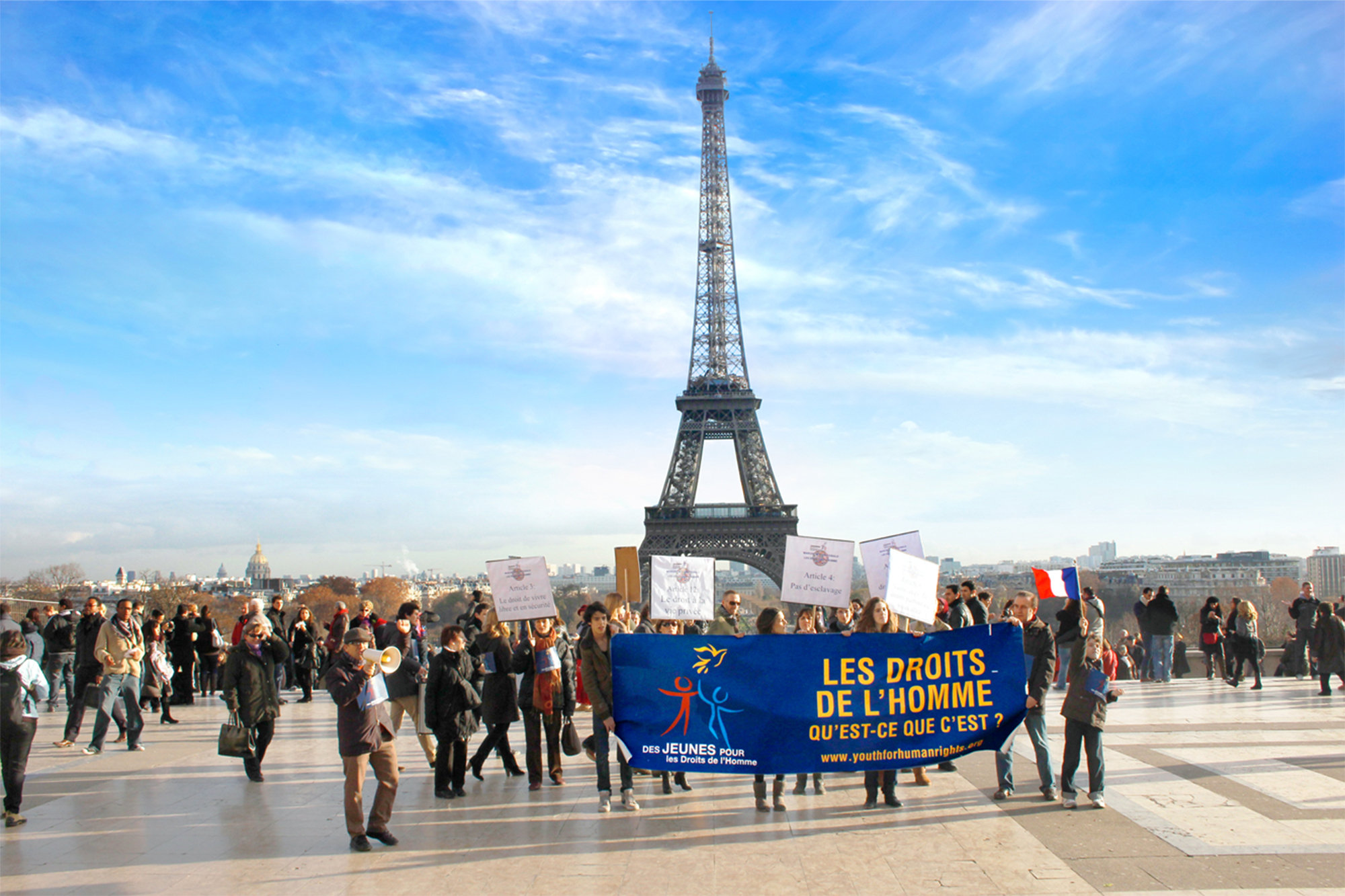
In England in May 2002, the Church of Scientology Human Rights Office, in cooperation with the Association of British Muslims and the Queens Federation of Churches of New York City, brought together 75 clergy, scholars and public officials representing two dozen religious traditions. Convening at Scientology UK headquarters at Saint Hill Manor in Sussex, Reverend Marcus Braybrooke, president of the World Congress of Faiths, opened the conference with these words: “Society needs to be based on spiritual and ethical values, but in our modern world these cannot be based on the teachings of one religion, but on the moral values which the religions share.” Conference attendees set a future agenda to work together to end intolerance and reverse the dangerous trends of drug abuse, violence and immorality in society.
The Church of Scientology in France has been outspoken in criticizing governmental religious intolerance. Since March 2000, the Church has been working with CAP, the Coalition of Associations and Individuals for Freedom of Thought, made up of 60 minority religious and spiritual groups. Its aim is to document discrimination and bring it to the attention of human rights organizations. CAP holds regular public hearings around the country in which individuals come forward and describe human rights abuses—the only such forum in France. The Association has published and circulated extensive information containing testimonies of religious adherents discriminated against because of their beliefs.
In Russia, where a restrictive religion law denies incorporation to many religious organizations, the Church’s Human Rights Office has organized high-level roundtable sessions in liaison with the Federal Ombudsman’s Office and the Russian Academy of State Sciences. The meetings brought together a diverse range of religious and government officials in an effort to encourage and promote dialogue and understanding to ensure religious tolerance in a pluralistic society. The Church of Scientology of Moscow has worked closely with other human rights groups and NGOs to organize forums on religious tolerance and human rights for all.
In addition, the Church of Scientology in Russia has been at the forefront of religious freedom, challenging the restrictive 1997 Religion Law. In April 2007, the European Human Rights Court, in Church of Scientology Moscow v. Russia (18147/02), overturned the Moscow City government’s refusal to register the Church of Scientology of Moscow as a religious organization under the 1997 Religion Law. The Court found that Russia had violated the rights of the Church of Scientology under ECHR Articles 11 (the right to freedom of association) “read in the light of Article 9” (the right to freedom of religion), when it refused to reregister the Church of Scientology Moscow.
The Church of Scientology worked with Church-sponsored delegates from various religions who visited Germany in May 2003, investigating reports about mistreatment of religious minorities. The delegation, led by Reverend N.J. L'Heureux, Moderator of the Religious Liberty Committee of the National Council of Churches in the USA, found that “Although religious freedom and tolerance are guaranteed by the German constitution and international instruments, the reality in practice is that such toleration is guaranteed only to the most mainstream and well-known religions.”
Better Informed Officials and Citizens
In September 2003, the Church of Scientology International established its European Public Affairs and Human Rights Office in Brussels, Belgium, as a focal point for the coordination of human rights activities with government and religious leaders throughout Europe. The Human Rights Office has been at the forefront of activities promoting and protecting human rights ever since, hosting numerous international forums on human rights.
As a nongovernmental organization at the Organization for Security and Cooperation in Europe (OSCE), representatives of the Church’s European Human Rights Office have attended OSCE meetings and conferences for many years, presenting research and position papers on human rights to the OSCE member delegations. For example, in July 2003 the Church’s Human Rights Director in Europe spoke on freedom of religion and belief at an OSCE conference attended by 125 government representatives from over 40 countries, presenting a series of proposals on safeguarding religious liberty, including a means to establish effective dialogue between public officials and religious organizations. The conference subsequently adopted a number of the Church’s proposals and incorporated them into its final report. The Office’s Human Rights Director is a regular contributor at OSCE conferences.
The Church of Scientology regularly holds conferences on important topics affecting religions in the European Union. For example, in July 2004 it hosted more than 30 religious, civil and political organizations for a working conference on “The Challenge of Human Rights in an Age of Terrorism, Religious and Ethnic Discrimination.” The conference was co-sponsored by the Spanish League for Human Rights, the Association of British Muslims, Media Watch, Church of Scientology International and Council for Human Rights and Religious Freedom.
During 2005, the Office held conferences on the relationship between government and religion, events marking International Day of Peace, International Day of the Child and International Day Against Drugs. In 2006, 2007 and 2008, in addition to acknowledging these important human rights days, the Office hosted conferences honoring individuals who had distinguished themselves for their work in support of human rights, introduced for the first time in Europe the Youth for Human Rights 30 public service announcements on each of the articles of the Universal Declaration of Human Rights, and premiered a documentary against racism.
Freedom Magazine: A History of Speaking Out
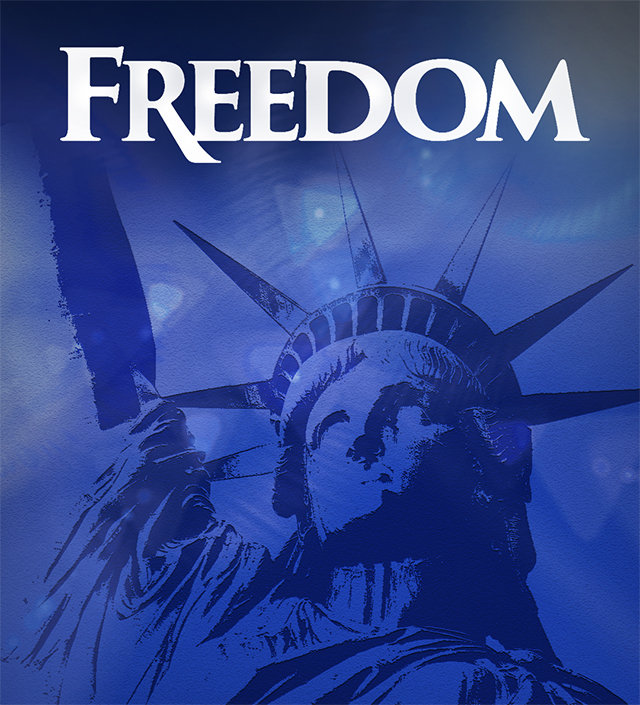
Originally a broadsheet distributed by hand in London, the Church of Scientology Freedom Magazine conducts investigative reporting in the public interest and provides a voice for the oppressed. It has been published since 1968, in 11 languages in 20 countries and on the Internet.
In 1976 the apartheid government of South Africa raided the Freedom office and banned its publication after Freedom exposed that 10,000 black mental patients were being used as slave labor. Working with other groups and media, the Church continued to expose the atrocities until a World Health Organization investigation confirmed the charges, stating: “This situation has no parallel in ... psychiatric care.”
As a result of Freedom’s work, a charter for the protection of patients’ rights was created and the magazine was back in circulation.
A forum for hard-hitting investigative journalism, Freedom has taken on stories that other media have been reluctant to investigate or publish. And as its readership has grown, so has public awareness of areas in need of social reform. Freedom has broken important stories on the forced drugging of schoolchildren, government chemical and biological warfare experimentation, and psychiatric brutalities.
In 1988, Freedom created the Human Rights Leadership Award to publicly recognize positive contributions of individuals in government, news media and other areas of society who have supported human rights. These awards are presented to those at the forefront of efforts to advance the causes of freedom of expression, freedom of information, government reform, mental health reform, children’s rights, religious freedom and social justice.
Fighting for the Rights of Others
Interfaith activities and public information campaigns are only a portion of the actions taken by the Church of Scientology in the protection of human rights.
Over the last four decades, the Church has been a pioneer in fostering the public’s right to know, through the use of Freedom of Information laws in many countries, and in educating the public on the importance of their right to know. The Church also established many of the leading judicial precedents in the United States regarding the Freedom of Information Act that have substantially benefited and expanded the public’s access to government records. In addition, as a public service, the Church published manuals for citizens explaining how to use access laws to obtain records in the public interest.
While legal rulings rarely hit the headlines, they impact the lives of millions. Such decisions include the Church’s pioneering work with Freedom of Information laws in the United States and Canada that set standards of government transparency subsequently adopted in many countries.
In France, while it is the law that individuals are entitled to inspect the secret dossiers maintained on them by the Renseignement Generaux (internal security and intelligence police), it took 39 cases filed by individual Scientologists to make this theoretical right a reality. Since this legal victory, more than 2,000 French citizens have requested to view their files.
In Australia, Church members fought for nearly two decades for a High Court decision defining religion in terms that include religions previously excluded from a narrow wording restricted to Christian denominations. The new definition has since become the legal definition of religion used in Australia and New Zealand.
Similarly, in Italy, Scientologists won an October 1997 decision bringing that country’s definition of religion into conformance with international law.
The Church’s copyright victories in the United States and Europe protect the rights of authors and publishers from wanton theft of their creations by unlawful publication over the Internet and helped bring international copyright law into the digital age.
Conclusion
A world in which universal human rights are a fact and not just an idealistic dream is not only attainable but vital. It is a goal to which Churches of Scientology and their parishioners are fully committed.

